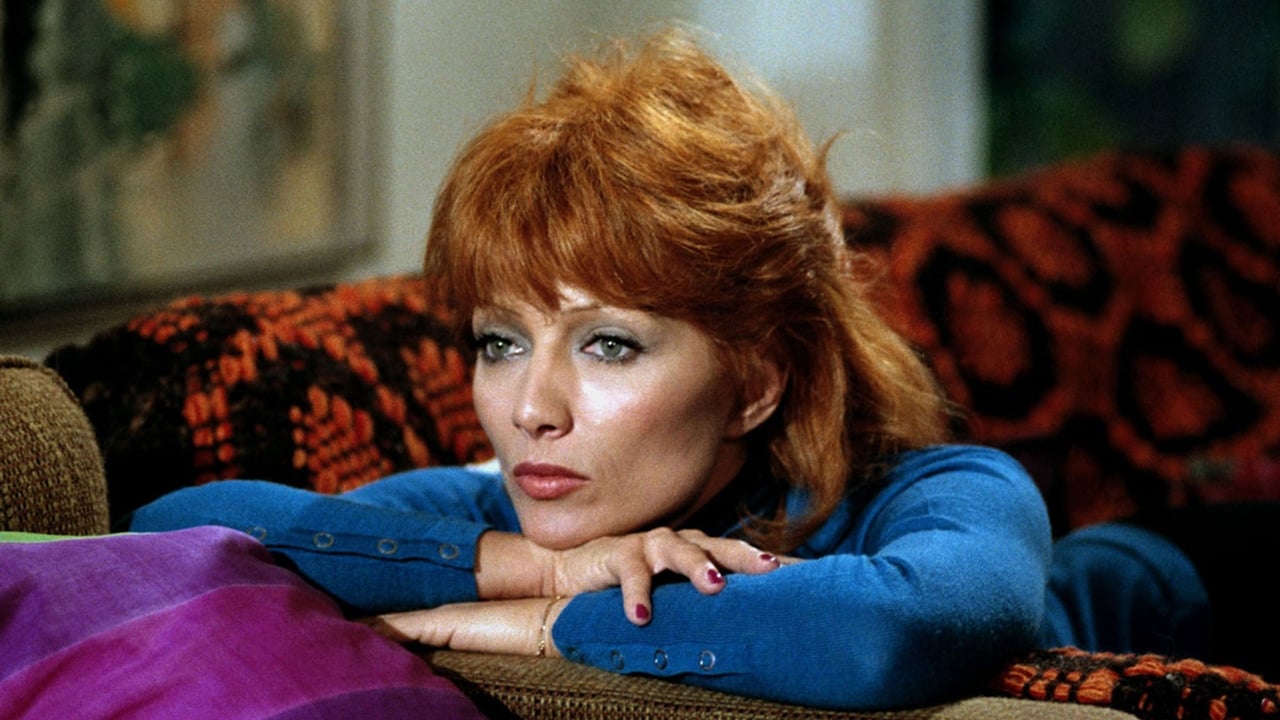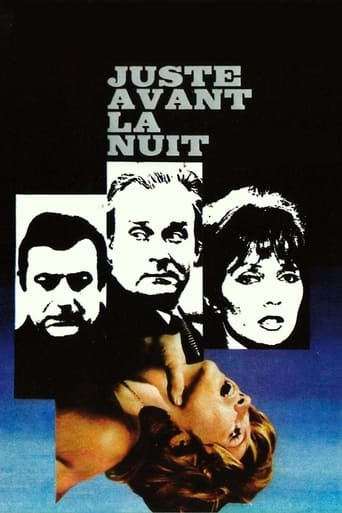Hellen
I like the storyline of this show,it attract me so much
Twilightfa
Watch something else. There are very few redeeming qualities to this film.
Taraparain
Tells a fascinating and unsettling true story, and does so well, without pretending to have all the answers.
ChampDavSlim
The acting is good, and the firecracker script has some excellent ideas.
Red-Barracuda
A man murders his best friend's wife. Guilt leads him to confess to the crime to both his friend and his wife. They in turn forgive him his act of homicide, betrayal and infidelity. This unconditional forgiveness and lack of reproach drives him to despair.Despite the early scenes suggesting that this could be a thriller, as is the way with Claude Chabrol's other films, the narrative of Juste Avant la Nuit goes off in an entirely different direction. It uses it's opening crime not as a springboard to a suspenseful story but as a way of examining the human condition. The murder almost becomes irrelevant as we progress through the film and witness the central character become more and more depressed as a result of the love and understanding he is shown by the people who should ordinarily hate him for the ultimate betrayal he has shown them. Like other Chabrol films, this one depicts a melancholic and tragic villain. The audience are asked again to empathize with the criminal and try to understand his angst. It's morally complex and doesn't give out any answers at all. If you're looking for a traditional crime thriller this is not it. How much you enjoy this depends on how interesting you find it's central questions. I'm on the fence.
MARIO GAUCI
Though coming from Chabrol's major phase (1967-1975), this was only recently released on DVD – and exclusively on R2 at that!; still, I had missed an incongruous Saturday morning broadcast of the film on Italian TV several years back. Ironically, even if it can lay a claim to being among the director's best-regarded efforts, I admit to having found such lesser-known Chabrol titles as DEATH RITE (1976) and ALICE OR THE LAST ESCAPADE (1977) – both of which immediately preceded this viewing – more readily satisfying…though the fact that JUST BEFORE NIGHTFALL treads typically bourgeois i.e. inherently mundane territory, whereas the others were fanciful (thus essentially lightweight), may have had more to do with this than anything else! Actually, my main quibble with the film is its overlength (due to the protagonist's wallowing in self-pity, this being basically an update of Dostoyevsky's literary classic "Crime And Punishment", during the last act); in a way, it is also a reversal of Chabrol's own LA FEMME INFIDELE (1969), with the very same stars (Michel Bouquet and Stephane Audran) no less. In the latter she is initially oblivious – and eventually forgiving – of his having learnt about her infidelity and murdered the other man, while here it is he who has a clandestine affair, kills the woman concerned and then confesses to both the wife and his best friend (husband of the deceased and played by Francois Perier), both of whom try to convince the guilt-stricken hero thereafter not to give himself up to the Police (she even taking extreme measures to this end)! Audran, still at the height of her statuesque beauty, is a particular delight and she went on to win a BAFTA award for it (shared for the actress' famously unruffled turn in that Luis Bunuel masterpiece THE DISCREET CHARM OF THE BOURGEOISIE [1972]).A subplot, then, depicts a comparable folly to the protagonist's – where the elderly and meek-looking cashier in Bouquet's firm embezzles funds to sustain his unlikely romance with a much younger woman (not that the perennially exhausted hero bore the looks of a Casanova himself but, at least, his sluttish mistress is clearly shown to be into sado-masochism). Ultimately, such ironic yet provocative (indeed quasi-surrealist) psychological nuances, are what make Chabrol's work so intriguing and quietly rewarding – more so, in fact, than perhaps any other of the "Nouvelle Vague" film-makers.
writers_reign
This is perhaps best viewed as a complement to La Femme Infidele inasmuch as both films feature infidelity in the well-heeled set and in both cases infidelity segues into murder with both murderers confiding in their spouses - those same spouses on whom they'd been cheating - whilst waiting to be nailed by the flics. Staphane Audran (then Madame Chabrol) is common to both films playing the adulterous wife in the first and then seeing how it felt to be cheated on in this one. This is often spoken of as a great period - late 60s, early 70s - for Chabrol and he certainly turned out some slick, glossy, psychological thrillers at the time, favouring a pastel, muted colour and steady, reliable actors. This is no exception and all three principals cannot be faulted performance-wise but it's difficult to escape the feeling that the whole thing is a tad over-clinical.
patate-2
One (Perrier) is architect. The other (Bouquet) is an advertisement executive. They've been friends forever and Perrier even designed the Bouquet residence (lady of the house speaking), a tremendous house. Bouquet who is married to Audran has an affair with his friend's wife. They play S&M and he kills her by accident. Every hint points the culprit but no-one wants to face the scandal. Perrier forgives him. Bouquet who wants to be punished decides to face justice but his wife puts him to sleep before he does. About that for a plot, Hollywood? Money can't buy talent.

